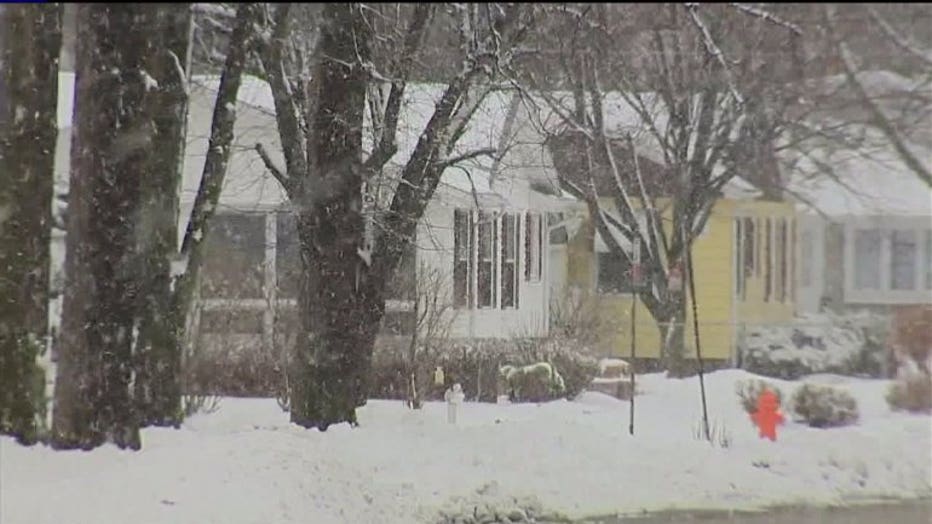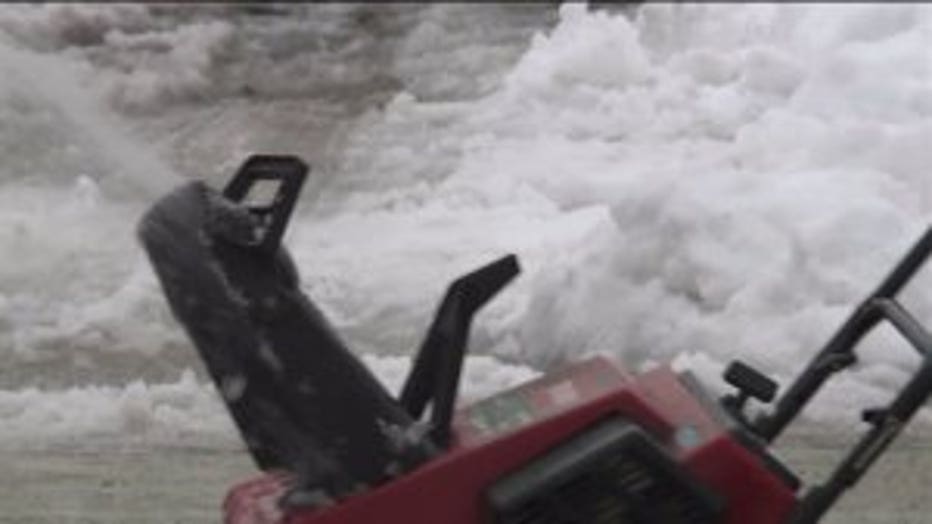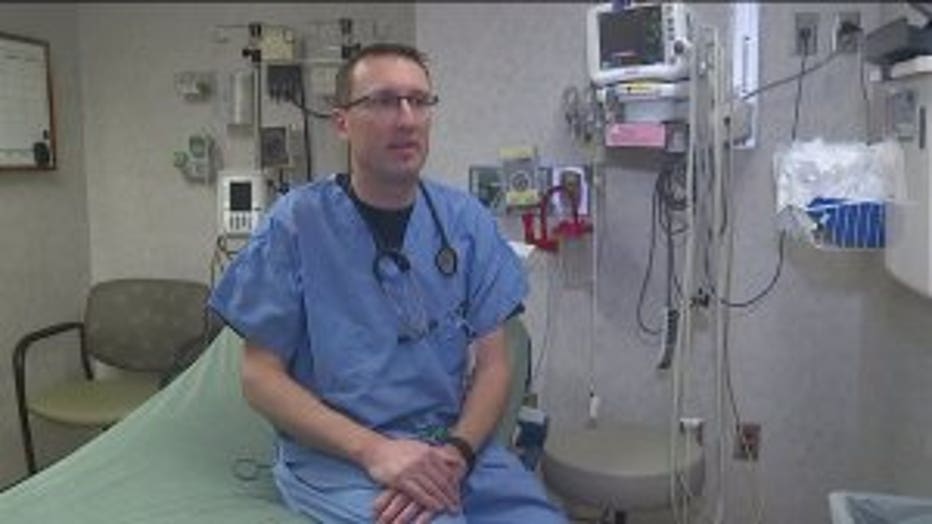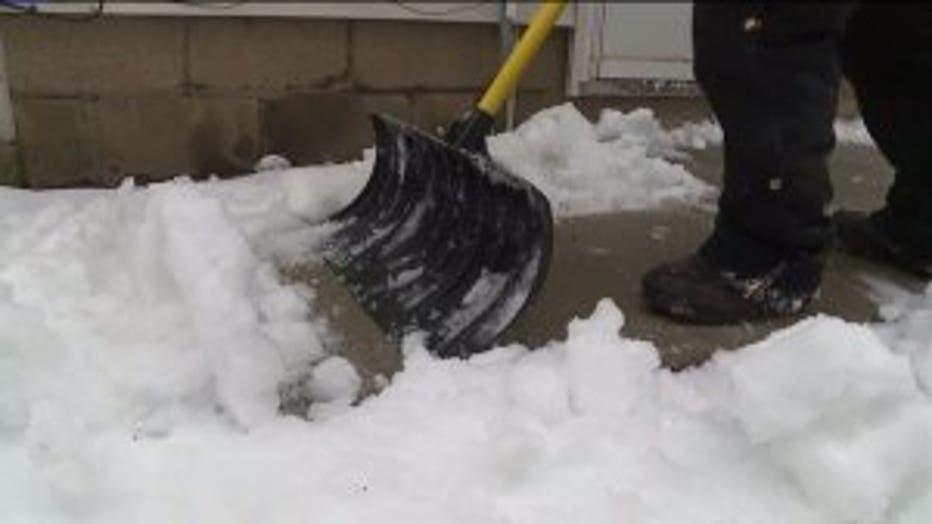Cleaning up several inches of heavy, wet snow can be hazardous to your health: Tips on staying safe
MILWAUKEE -- The day after a big snowfall is when emergency rooms get crowded. And that was the case on Tuesday, December 29th -- after a winter storm dumped nine inches of snow in Milwaukee on Monday.
Unfortunately a major snowfall and injuries (and even deaths) go hand-in-hand.
But there are steps you can take in an effort to ensure your safety.
Snow can be pretty when it's coming down, but it can also be hazardous to your health.

Snow falling in Milwaukee on December 28th
"It`s a wet, heavy snow. Unbelievable," Daniel Powalisz said.
The heavy, wet snow was plugging up Powalisz's snow blower constantly on Tuesday -- but he knew how to remedy that safely.

Snow blowing
"I just run it until it unplugs itself," Powalisz said.
It appears Powalisz had more patience than others. Some wound up at the hospital while trying to clean up the snow, and Dr. Bill Lieber says it's something he sees every year.
"People tend to think the best way to clear out the funnel on the snow blower is to stick their hand down the shoot and that`s a bad idea," Dr. Lieber said.
Dr. Lieber says injuries range from the fairly minor to actually needing surgical repair.
The consistency of the snow that fell on Monday was what was concerning for Powalisz.

Dr. Bill Lieber
"If it was the soft stuff, I don`t care. But this wet stuff -- you take a shovel and you`re all pooped out," Powalisz said.
Dr. Lieber says that 'pooped out' feeling could be a red flag, signaling a heart problem or even a heart attack. And those with known coronary artery disease aren't the only ones at risk.
"They`re exerting themselves more than they should and sometimes they have a problem that they don`t know about and it takes shoveling this heavy snowfall before they know it," Dr. Lieber said.

Shoveling
Dr. Lieber says it's important that you don't over-exert yourself when shoveling, and if you feel tightness in your chest, see a doctor immediately.
It is also important to watch out for icy, slick spots. Dr. Lieber says he sees a lot of patients with broken ankles and wrists from falls.
The wrist injuries come from folks trying to brace themselves when they fall.
Related resources:
American Academy of Orthopaedic Surgeons: Prevent Shoveling/Snowblowing Injuries
American Heart Association: Shoveling and heart hazards

